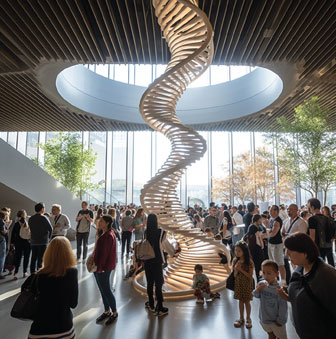
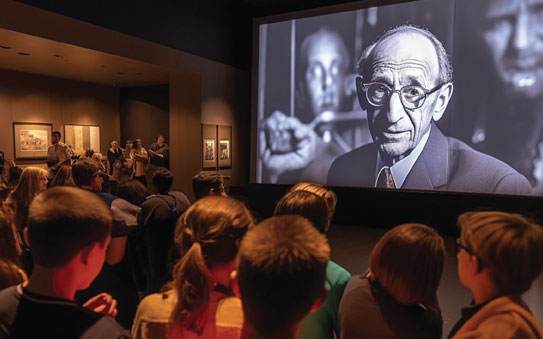

About
Museums aren’t just places to view important historical objects. Museums are places of the imagination, “…the theater where the drama of humanity is enacted.” We have museums devoted to natural history, culture, space exploration, civil rights and all manner of artistic expression. But surprisingly, one of our nation’s most important human endeavors—the quest to fight disease and prolong life by translating scientific discoveries into medical advances—lacks a national venue that captures the drama of its story.
The United States’ contributions to science and medicine rank among modern history’s greatest achievements. Scientific discoveries that went on to become medical advances that changed the world are among the most important stories that a society can tell—and the American public should hear.
With the Museum of Medicine and Biomedical Discovery, we envision a new kind of venue — a place that doesn’t just recount the achievements of the past but uses narrative storytelling, AI and interactive displays to animate the past, capture the present and imagine the future.
The Museum of Medicine and Biomedical Discovery will not be a place to go and see; it will be a place to go and experience. It will employ interactive technology, immersive reality and digital storytelling to make the experience engaging and informative. Our vision is to educate, inform and inspire so that every individual who visits the museum comes away feeling “I know. I trust. I can imagine myself…”.
One Room in the Museum
Medical Advances that Changed the World
Insulin and Type I Diabetes
Topics covered in the museum will change on a regular basis to keep the experience fresh and new. What follows is one example for one exhibit: the impact of insulin on people with Type I diabetes.
Upon entering the room, visitors would be met by a hologram of Laura—a young girl from 1920 sharing her ongoing struggle with Type 1 diabetes. In her own words, Laura would describe how she struggles to keep up with her friends and how she lives in fear that she may fall desperately ill at any time because her blood sugar rises too high or falls too low. The hologram of Laura slowly fades away, and guests then enter a room that envelops them in the story of insulin.
The visitor would be virtually transported to Toronto in 1921 to witness Frederick Banting and Charles Best discover that a substance in the pancreas – insulin – could lower elevated blood sugar in a diabetic dog and their elation when, six months later, a purified form of insulin did the same for a child with Type I diabetes. Visitors would get a sense of the extraordinary efforts made to scale up production of insulin in those early years and what was involved in producing just one ounce of this precious substance. They would hear about the quest for better, longer-acting insulins in the 1930s, ‘40s, and ‘50s and their impact on reducing the frequency of injections needed. They would see how the emergence of recombinant DNA technology in the 1980s led to the production, for the first time, of fully human insulin. Interactive kiosks would be placed around the exhibit to provide a deeper look into selected areas of potential interest such as how diabetes affects various organs, how abnormally high or low blood sugar affects the body, and the differences between Type I and Type II diabetes, just to name a few.
At the end of the exhibit, a second hologram of young Laura would appear, but now in 2023. She is strong, active and speaks with excitement about her life and plans for the future. She lifts her shirt to reveal that she is wearing a glucose monitor linked to an insulin pump that keeps her blood sugar level in the normal range.
But that is not the end of the story. Before visitors exit, they would be able to hear from researchers who are working on ways to cure or prevent diabetes in the future through stem cell transplantation, the creation of an artificial pancreas or by regulating the body’s own immune system to prevent the loss of insulin-producing cells in the first place.
Our leadership is deeply committed to offering this type of immersive, personal experience for our guests. And it is a prime example of the “before and after” perspective that would be a hallmark of the major advances presented in How Medical Advances Change the World.
Location
We are actively engaged in a search for the best site for the museum. Site selection will depend upon strong community, government, and philanthropic support.

Mace Rothenberg
President and Executive Director
Mace L. Rothenberg, MD is a medical oncologist with more than 30 years of experience spanning government, academia, and industry. Dr. Rothenberg served as Chief Medical Officer of Pfizer from 2019 to 2021 during which time the company initiated, completed, and obtained emergency use authorization for its COVID-19 vaccine. Prior to that role, Mace led Clinical Development for Oncology at Pfizer from 2008 to 2018. Over that 10 year period, his organization developed and obtained regulatory approval for 11 new cancer medicines. Dr. Rothenberg began his career as special assistant to the director of the Division of Cancer Treatment at the National Cancer Institute, then moved to the University of Texas Health Science Center at San Antonio, and then to Vanderbilt where he became professor of medicine and Ingram Professsor of Cancer Research at the Vanderbilt-Ingram Cancer Center. Dr. Rothenberg is a Fellow of the American College of Physicians and the American Society of Clinical Oncology. Dr. Rothenberg received his BA magna cum laude from the University of Pennsylvania, his MD from the New York University School of Medicine, his post-graduate training in Internal Medicine at Vanderbilt, and his medical oncology training at the National Cancer Institute.
Board Members
Donna Culver
Director
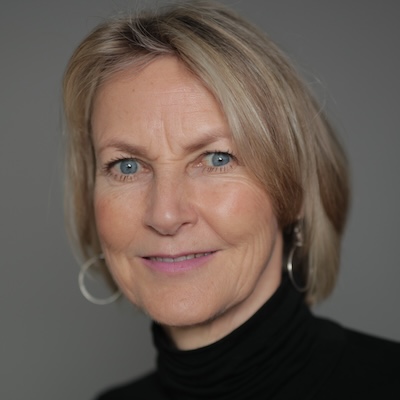
In an age where audiences are increasingly skeptical of traditional advertising and PR, Donna stands out by crafting stories that feel real and meaningful. She gives voice to the people who matter most—her clients’ customers, staff, and communities—bringing their experiences and perspectives to the forefront.
Donna’s dedication to healthcare is deeply personal. Her father’s battle with cancer and the challenges her family faced navigating his care inspired her to focus her work on helping healthcare providers reconnect with their mission of caring for patients and families. As a longtime member of the Alive Hospice Advisory Board, she has a passion for supporting the challenges and beauty of the dying process.
With over 30 years of experience in marketing communications, film, and video production, Donna continues to collaborate with many of the clients who partnered with her when she founded Culver Productions in 1985. Her expertise and enduring relationships reflect her commitment to excellence and genuine storytelling.
Susan H. Edwards, PhD
Director
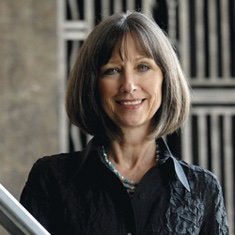
Edwards earned BA and MA degrees from the University of South Carolina and a PhD from the City University of New York Graduate Center. She is an acknowledged expert in American art and photography, has organized exhibitions, published and lectured widely on modern and contemporary art, material culture, and photography. She also taught these subjects at New York University, Queens College/CUNY, School of Visual Arts, New York, and Vanderbilt University. Previously, Edwards was Director of the Katonah Museum of Art and Curator at Hunter College of the City University of New York. She has published numerous catalogue essays and articles in national and international journals.
Edwards was appointed a Chevalier dans l’order des Arts and des Lettres by the French Government in 2011. She was a Founding Fellow at the Liguria Study Center for the Arts & Humanities, Genoa, Italy. She is a member of the American Alliance of Museums, International Council of Museums (SUSTAIN Board), Art Table, College Art Association, and the International Women’s Forum. She served as a trustee on the board of the Association of Art Museum Directors and remains a member, emerita. She was a member of the 2006 Leadership Nashville class. She served on the Harvard Art Museums Collection Committee 1995-2022.
Lawrence J. Marnett, PhD
Director
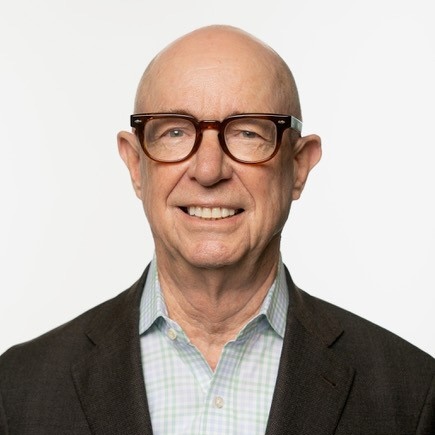
Lawrence J. Marnett, Ph.D., is Dean Emeritus of the School of Medicine Basic Sciences at Vanderbilt University. He is also University Distinguished Professor, Director of the A.B. Hancock Jr. Memorial Laboratory for Cancer Research, Mary Geddes Stahlman Professor of Cancer Research, and Professor of Biochemistry, Chemistry, and Pharmacology. Marnett received his Ph.D. in Chemistry from Duke University and did postdoctoral work at the Karolinska Institute and Wayne State University. He began his academic career at Wayne State University where he rose through the ranks to Professor of Chemistry. He moved to Vanderbilt and served as the first Associate Director of Basic Research of the Vanderbilt Ingram Cancer Center. He was subsequently named Director of the Vanderbilt Institute of Chemical Biology then Associate Vice-Chancellor for Research and Senior Associate Dean for Biomedical Sciences of the Vanderbilt University School of Medicine. He was named founding Dean of the School of Medicine Basic Sciences in 2016.
Marnett’s research program focuses on the role of inflammation in cancer. He studies the role of the enzyme cyclooxygenase-2 in cancer and inflammation as well as the role of polyunsaturated fatty acid oxidation products in DNA damage and mutation. His group has used structure-based approaches in conjunction with medicinal chemistry to design selective cyclooxygenase-2 inhibitors as potential anti-inflammatory, cancer preventive, and imaging agents. He is the author of over 500 research publications and 16 patents. Included in the awards Marnett has received are an American Cancer Society Faculty Research Award, the Sigma Xi Research Award, an Outstanding Investigator Award and a MERIT Award from the National Cancer Institute, the Founders Award from the American Chemical Society Division of Chemical Toxicology, and the George and Christine Sosnovsky Award for Cancer Research from the American Chemical Society. He is a Fellow of the American Association for the Advancement of Science and a Fellow of the American Chemical Society.
Marnett was the founding Editor-in-Chief of the American Chemical Society journal, Chemical Research in Toxicology, a position that he held for 25 years. He has served on numerous editorial advisory boards, grant review committees and service committees of scientific societies. He has consulted with major pharmaceutical companies and currently serves on the boards of directors of BioTN and Life Sciences Tennessee.
Mike Meyer
Director
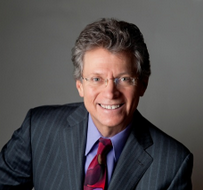
Meyer’s early career was as vice president in charge of the New York office of Amherst Associates, which went public in 1981. He subsequently became a senior partner in Witt Kieffer before founding Meyer Consulting in 2007.
Meyer founded Cancer Care at the Crossroads (CCX) Summit in 2016. This one-of-a-kind event brings together senior health care executives from all stakeholders involved in cancer research, delivery and finance in the US and international. In 2019, Meyer Consulting’s executive search practice was acquired by Westwood & Wilshire, one of the premier firms in life sciences and technology.
He serves or has served on multiple Boards. Meyer was a board member of Summit Select, part of Summit Medical Group which merged with CityMD creating one of the largest private physician groups in the US with support from Warburg Pincus. He co-founded the Institute for Mental Health Research (www.imhr.org) and is a board member of the Museum of Medicine and Biomedical Discovery ( www.mmbd.org). He has been widely quoted on healthcare, oncology, mental health and retiree topics in healthcare and business publications. He is the author of Catastrophic Illness and Catastrophic Health Insurance published by the Heritage Foundation, and co-author of Destination Southwest, A Guide to Retiring and Wintering in Arizona.
Marty Murphy, DMedSc, PhD
Director
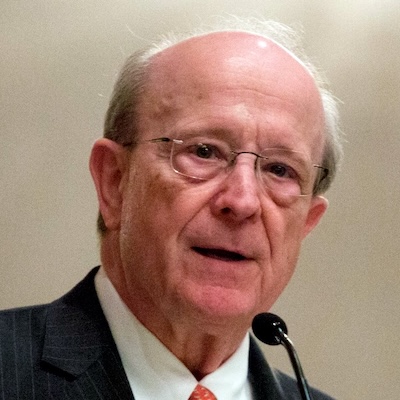
Marty was founding CEO and director for twenty years of the non-profit CEO Roundtable on Cancer at the request of the 41st President George H. W. Bush. He also was founding CEO of Project Data Sphere®, a non-profit initiative of the CEO Roundtable devoted to cancer clinical trial data-sharing and analysis. He is CEO Emeritus of the first-in-class non-profit Shanghai TuoXin Health Promotion Center that in 2020 was asked to expand its purview from cancer prevention and improving cancer patient outcomes in China and globally to include international Covid-19 interventions and global pandemic preparedness.
Founding Executive Editor of the peer-reviewed journal, The Oncologist, Marty also was Founding Editor of Stem Cells, the flagship journal of stem cell biology, and Co-Founder of its 12-year-old sister journal, Stem Cells Translational Medicine reporting on progenitor cells that have entered into patient clinical trials.
A former NIH principal investigator, Marty has authored more than 180 primary peer- accepted papers and 7 books. He serves on six Scientific Advisory Boards, two corporate boards of directors, Chairman Emeritus of Conquer Cancer—ASCO Foundation, a Steering Member of Chinese Society of Clinical Oncology, and a Fellow of American Society of
Clinical Oncology.
Dara Richardson-Heron, MD
Director
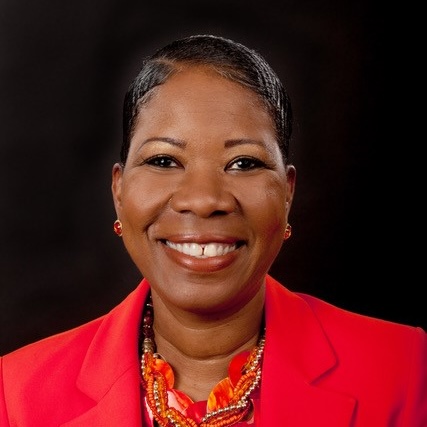
Dr. Richardson-Heron recently served as the Chief Patient Officer at Pfizer, Inc., one of the world’s largest pharmaceutical companies where she played a pivotal role in advancing the organization’s efforts to increase diversity in the landmark covid-19 clinical trial. She also led efforts to develop the organization’s global strategy to advance patient-focused programs, health equity and impactful interactions with the organization’s patients in over 180 countries.
Before joining Pfizer, Dr. Richardson-Heron served as the chief engagement officer and scientific executive for the National Institutes of Health’s (NIH) All of Us Research Program. There, she served on the NIH executive leadership team and led outreach efforts to educate, inform, inspire, enroll and retain over 1 million volunteers in a landmark effort to advance diverse and innovative health research that may lead to more precise treatment and prevention strategies and the elimination of health disparities.
Dr. Richardson-Heron describes herself as a physician by trade and an advocate by choice. She holds a doctorate in medicine from New York University School of Medicine and she completed her Internal Medicine Residency at NYU Medical Center/Bellevue Hospital in NYC. She also holds a bachelor’s degree in biology from Barnard College and completed Executive Human Resources Leadership and Management training at the University of Michigan.
Jeffrey Le Benger MD, FACS
Director
Dr. Jeffrey Le Benger is Senior Advisor to the CEO and a board member of VillageMD, the largest independent multispecialty group in the United States. From 2021 to 2022 Dr. Le Bengerwas the Executive Chairman of Summit Health/CityMD, the health care network formed by a 2019 merger of Summit Medical Group and CityMD.
From 1999-2019, Dr. Le Benger was Chief Executive Officer of Summit Medical Group. Summit Health was comprised of morethan 2,500 providers, 12,000 employees in over 340 locations in New Jersey, New York, Connecticut, Pennsylvania, and Central Oregon.
Dr. Le Benger is board certified in otolaryngology, head and neck surgery, facial plastic and reconstructive surgery. He is a fellow of the American College of Surgeons, American Rhinologic Society and American Society of Head and Neck Surgery. He earned his medical degree from New York Medical College and completed his residency at Mount SinaiMedical Center.
Dr. Le Bengerwas elected to the board of the Museum of Medicine and Biomedical Discovery in December, 2023.
Iris Grossman PhD
Director
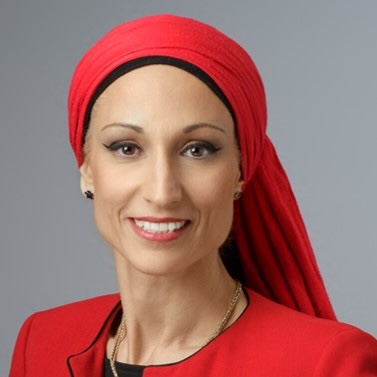
Iris Grossman is Chief Therapeutics Officer at Eleven Therapeutics. Dr. Grossman has been a pioneer in the application of personalized medicine principles into the entire continuum of drug discovery and development. The portfolios she managed span a wide variety of therapeutic areas and modalities, with an emphasis on the integration of deep scientific insights, clinico-genomic patient data and sophisticated analysis approaches for the purpose of developing therapeutics and diagnostics that better patients’ lives. Previous to her new role at Eleven, Dr. Grossman served as Chief Scientific Officer at biotechnology companies Amide Technologies and CAMP4 Therapeutics, and beforehand as VP, Head of Early Stage Clinical Development at Teva Pharmaceuticals. Dr. Grossman holds a PhD from the Technion — Israel Institute of Technology (in conjunction with the Weizmann Institute of Science), a post-doc fellowship from Duke University, and a HealthTech fellowship from Harvard Business School.
